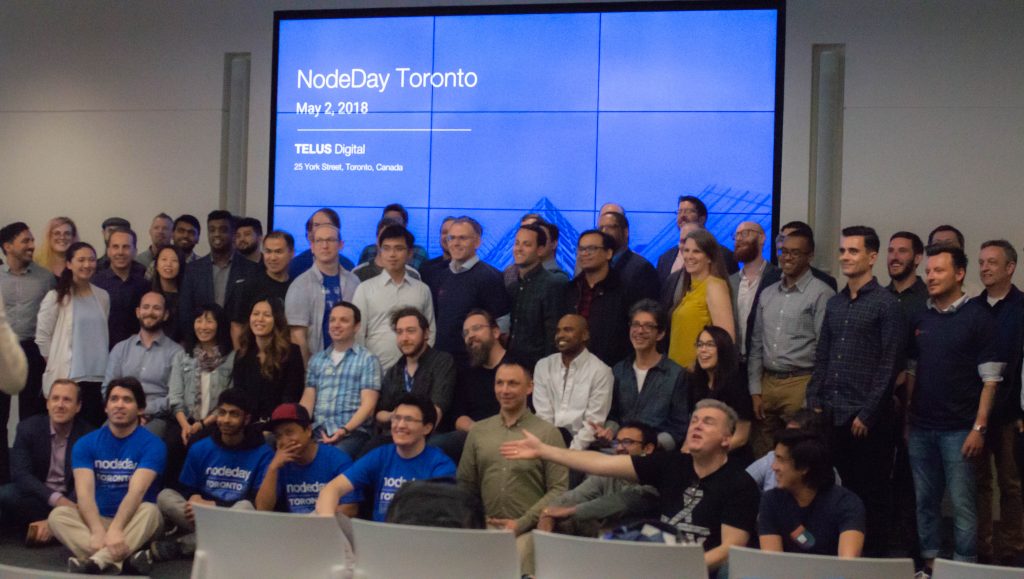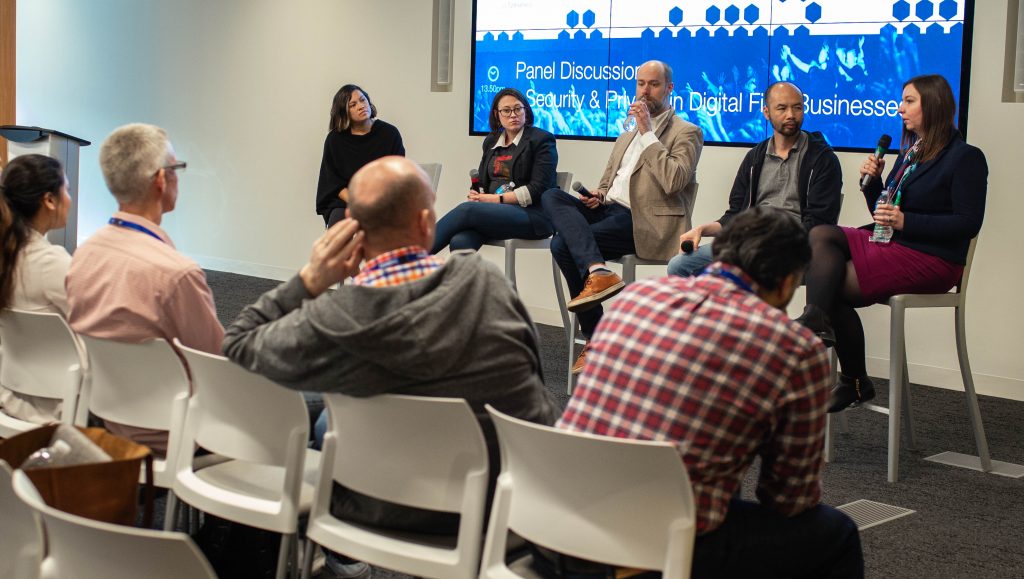Transcript
Dan Shaw:
Node.js, and the web platform, are really in this deeply interconnected Venn diagram of technologies, where we have JavaScript, HTML, and the web platform as this common dialect of how we’re able to deliver these dynamic experiences that we need to put in front of our end-users. So, Node, is speaking the same language as it is enabling us to deliver those experiences faster and I expect the broad consensus around, Node and its open governance and the web and its broad usage and standards, to continue to drive innovation, both for developers and for businesses.
Ed Cudahy:
It’s really important that you’re really unified as much as possible and I think that’s what JavaScript and Node moving to the server has helped having, it is language. At the end of the day, it is just the exact same things that primary language is, it’s a means of communication and that’s what it is, and you’re communicating when you write that software.
Shawn Mandel:
The challenge of the network transformation program we embarked upon wasn’t really about technology or systems, even though it was. There are huge investments in technology. Massive IT systems investments, but the more and more you delved into it, it was about a cultural change that needed to be made and how a shift in mindset needed to occur around how the organization went to market in a far more standardized way. So, they’re moving from a world of proprietary technology to an open standard world and that drives a significant shift in how the company operates.
Briana Brownell:
Days like this are really important to bring people together to share ideas because often people are working in an organization, they have close contact with their team, but they’re not necessarily getting outside of that organization, that silo. So things like this, days like this, where you have presentations on different topics and you have different perspectives coming in and discussing different areas of work, I think are really important to be able to take that information back into the organization so that you can use it.
Joel Chen:
I’m working with, all the other Walmart infrastructure teams to make Node.js a more accessible platform for all our development teams. We’re growing out, new tools to make developing secure code easier and seamless.
Tara Z. Manicsic:
One thing that is extremely important to me, that I would like to put a lot more time towards, is this journey and this story of JavaScript becoming a seamless coding platform, front and back. So, to do that, you would want Node on the back end, and this gives so many great possibilities to developers to really hone their skills in JavaScript and be able to code backwards and forwards, the application they need. And, you don’t have to just to be on front end. You can switch your developers around as you like because we always want to keep learning and keep making new things. So, Node, I think is the stepping stone to really making this kind of universal standard of how we code and I think that standards like that are really important to be able to create more and more.
Takara Small:
So Telus and Ahmad were amazing. They have been instrumental in our progress so far. They reached out to us and they saw what we were doing and they’re like, how can we help? And we were just blown away by how supportive they’ve been. They have been instrumental in introducing us to people who want to volunteer with our group and also helping, I think really showing our kids how large corporations care about them as well and I think that’s a really important aspect of teaching kids why it’s important to enter tech.
On May 2nd, TechMasters partnered with TELUS to host NodeDay 2018, a one-day event highlighting how node.js provides a solid digital transformation foundation for legacy organizations. Ultimately, NodeDay was designed to inform leaders about the benefits of using modern programming languages and approaches in order to combat disruption.
Welcoming over 200 C-level attendees and developers at the TELUS digital Conference Space, the event was a source for rich insights on programming, agile approaches, data best practices, and the benefits of working with open source technologies.
Top representatives of the javascript and digital transformation scenes shared a wealth of insights through the various talks, panels, and workshops that took place at NodeDay 2018. Here are some takeaways.

Digital transformation as the DNA in organizations
Every successful business in the world is using technology, whether selling a product or service, actively engaging customers, or supporting how your team works together. With every business looking to improve customer experience and service delivery models, it’s those who can tap into the most effective, transformational technology and processes that begin to set themselves apart. But how do businesses keep up with emerging technologies and practices? How do they know which what will benefit them the most?
Paul Savage, COO at nearForm, says organizations will only know the impact of the right technology in their businesses if they take the time to understand it and always find new ways to apply it.
“The real secret is to build a culture of innovation. It’s not about, ‘I’m on a legacy system. I’m gonna transform, I’m gonna be on a new system and everything’s good.’ It’s building in the capability to change and innovate as you go. Digital transformation will lead to DNA inside organizations where they are constantly changing.”
Organizations need to prepare for, jump into, and understandably ride the waves of digital transformation to become adaptive to new opportunities afforded by emerging technologies.
Applying Node.js isn’t just a trend, it’s a game changer for experience delivery
Node.js is a platform that will continue to bring alignment and efficiency to teams through a shared language across the full development stack.
“Node.js and the web platform are really this deeply connected Venn diagram of technologies where we have Javascript, HTML, and the Web cloud platform as this common dialect of how we’re able to deliver these dynamic experiences for end users. Node is speaking the same language and it is enabling us to deliver those experiences faster,” said Dan Shaw, Strategic Advisor at nearForm.
Large enterprises are adopting Node.js because of community benefits
Principal Architect Joel Chen said that WalmartLabs immediately invested in Node.js as their standard platform for web development, not just for the internal team efficiencies it provided, but in an effort to tap into an open community and follow open standards.
“We wanted to be able to hire people who have existing skills that they could immediately use when they came to WalmartLabs. [Node.js] is collaborative and has a huge community and an open working environment.”

Other topics discussed at NodeDay included security and privacy in digital businesses, data as a driving force for customer delivery, innovation, and inclusivity benefits and practices.
NodeDay 2018 was a great opportunity to channel in on how modern technology, like Node.js, play a role in transforming organizations. We encourage you to stay connected with TechMasters to keep up to date with their future events.
From uncovering new market opportunities to finding new efficiencies through technology and processes, we’re here to help.
If you’re exploring ways to bring new efficiencies to your organization, let’s talk.